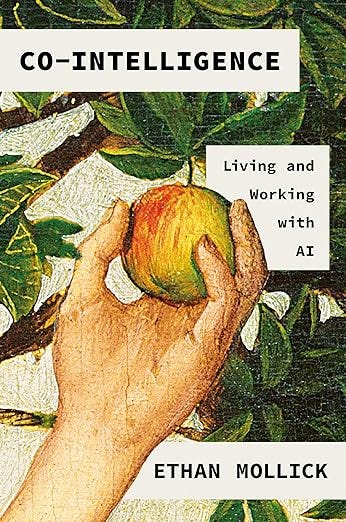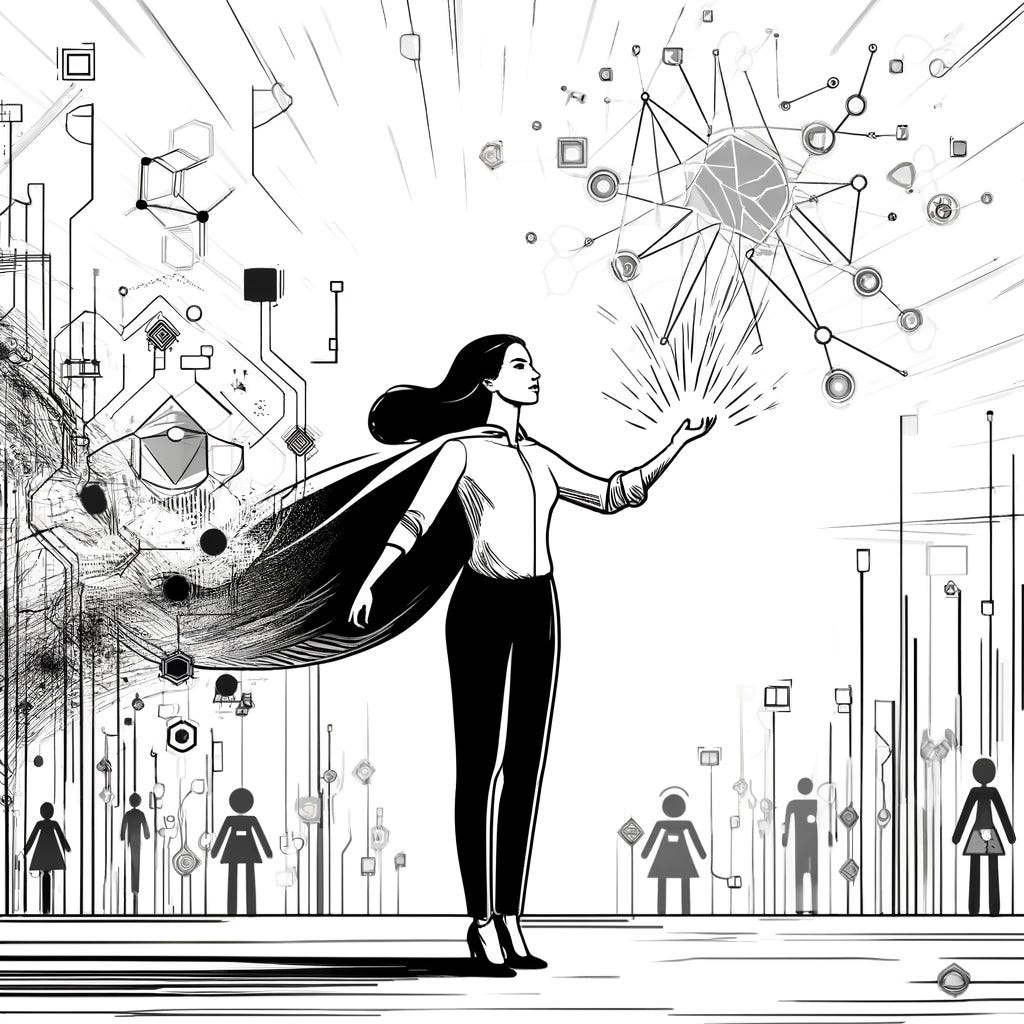The One Thing You Might Be Missing
This Little Nudge Might Be Your Difference Maker
This weekend I started reading Ethan Mollick’s new book Co-Intelligence. If you don’t immediately recognize his name, he is a Wharton professor and I consider him one of the preeminent names in the AI for education field, because he is both a researcher and an early-adopter of actively using AI with his students.
In the third chapter of the book, Mollick gives an example which I think if we can take five minutes this weekend to run this little experiment, it might be the “lever that moves mountains” in your world. Which mountain… is specifically up to you.
Let me explain:
One of the precepts he shares, is to invite AI into as many roles and work projects as possible, because we don’t fully understand yet what its capabilities might be. So you could think of it like an earnest and enthusiastic intern. We have some responsibility to mentor and engage this intern for its own growth, and along the way we might just find some value (both short and long term perspectives).
For example, when Mollick was writing the book, he found himself stuck and holding back with what he described as the Status Quo Bias. Fancy words for what happens when we get stuck on our big life goals because we are avoiding making changes.
What To Do When Life Gets Busy
In Mollick’s case, he WANTED to write this book. But like all of us, he had a lot on his plate. His responsibilities as a full professor, his Substack ‘One Useful Thing’ plus all his family roles.
I am sure you get it. We want to do something big… amazing… and life-changing. But there is an inertia that sort of holds us on the current path. That’s the Status Quo Bias.
So to make the case that having an outside (he calls it an ‘alien’) perspective can be helpful, he used the following prompt:
I was thinking of writing a book about generative AI, but I am very busy and don’t think I want to make such a large commitment. Can you reframe my failure to write a book as a loss rather than a default option? Make the framing vivid.
The response back produced the book, changed his world… and might just change yours too:
In a world brimming with knowledge, you stood at the precipice of innovation, holding a torch of understanding about generative AI. Yet, when the world looked to you for illumination, the torch remained unlit. Not because the world wasn’t ready, but because you let the whispers of business snuff out its flame. It wasn’t the world’s loss; it was yours.
Ouch.
That is both brilliant and it stings a bit.
How many times have you held back? I know there are a number of times I hesitated because I knew things were going to be hard; because I was already busy; because I might fail… heck, even this LIFTED project is one of those moment that didn’t even happen.
What Will You Do With This Prompt? ☝️
What is the book, the event, the new program, the offer, the adventure… the I don’t know what, but you do… What is the cave you fear to enter?
If you can do THAT little bit of work (name your cave, and the treasure within)… and then apply the simple prompt above, how might the world be better off because you’ve unlocked the handcuffs of Status Quo Bias?
I would love to know. Seriously, if you are willing to share, drop a note in the comments. I bet the answers will be fascinating. But I also get it. That’s scary stuff to even talk about - let along open up to others.
One More Thing…
About this ‘alien voice’ that Mollick describes. I’ve always felt that all of us together, are smarter than any small group of us can pretend to be. I am referring to getting ALL the voices to the table to be heard, but Mollick applies this same concept to AI. In the author’s words:
“This diversity in though and approach can lead to innovative solutions and ideas that might never occur to the human mind.”
Don’t expect it to be 100% right and accurate.
Remember, it is an intern. It doesn’t have your experience or its judgment.
The technical term that AI scientists use for the lies that AI’s create is “hallucinations” - but the word I like better is “confabulations.”
Mollick calls these confabulations “… subtly incorrect answers that feel very satisfying.”
Generative AI doesn’t lie intentionally and it doesn’t even know it is lying. It just confabulates because mathematically, the next words that it expects to see fit together like formula.
And just like when calculators showed up on the scene, we do higher level mathematics today because the prevalence of the technology that “lifts” us.
One way (maybe the most important way) to enable generative AI to “lift” us is to give it a role or persona that it can step into. Mollick asked it to be that tough-minded coach to really reframe what would be lost if he didn’t make time to write that book.
In this blog post, Tim Requarth shares how academics are finding that gen AI tools like ChatGPT are equally if not better reviewers of academic articles and grant proposals.
This is premise of the LIFTED life. Co-Intelligence. Friends with an alien mind. I don’t care what you call it. But I care deeply about what it might do for you.
Material Advancement vs. Vaporware
A lot of marketing people (I am or used to be a digital marker by training) were early to adopt the gen AI tools because it was amazing how quickly you could write or create presentations.
It feels like a superpower - to be able to change minds, and at scale.
But I’ve been looking for the right words to describe the difference AI can make when we start to make material differences in our world. Convincing people to buy more of product A rather than product B might fill a bank account, but does it change the world?
I think AI has the potential to change the world. Maybe it will unlock new chemical formulations, or allow our scientists to understand energy in new ways.
And if YOU use it to write the book… or do the thing that is inside of you that might otherwise get vapor-locked with Status Quo Bias, I think that also is world-changing.
Because the world is only going to be changed/LIFTED… one person at a time.
Have a great rest of your weekend!



